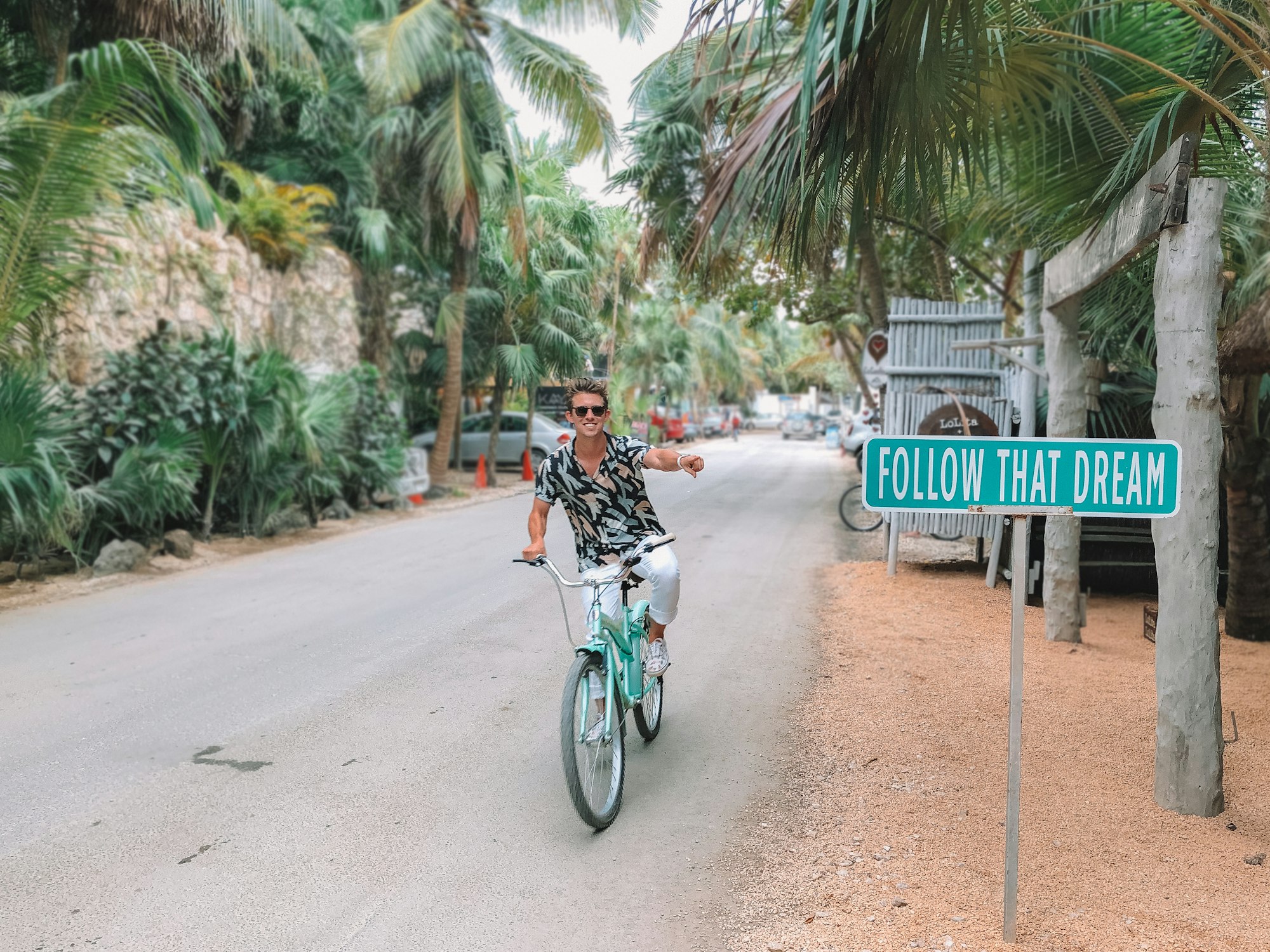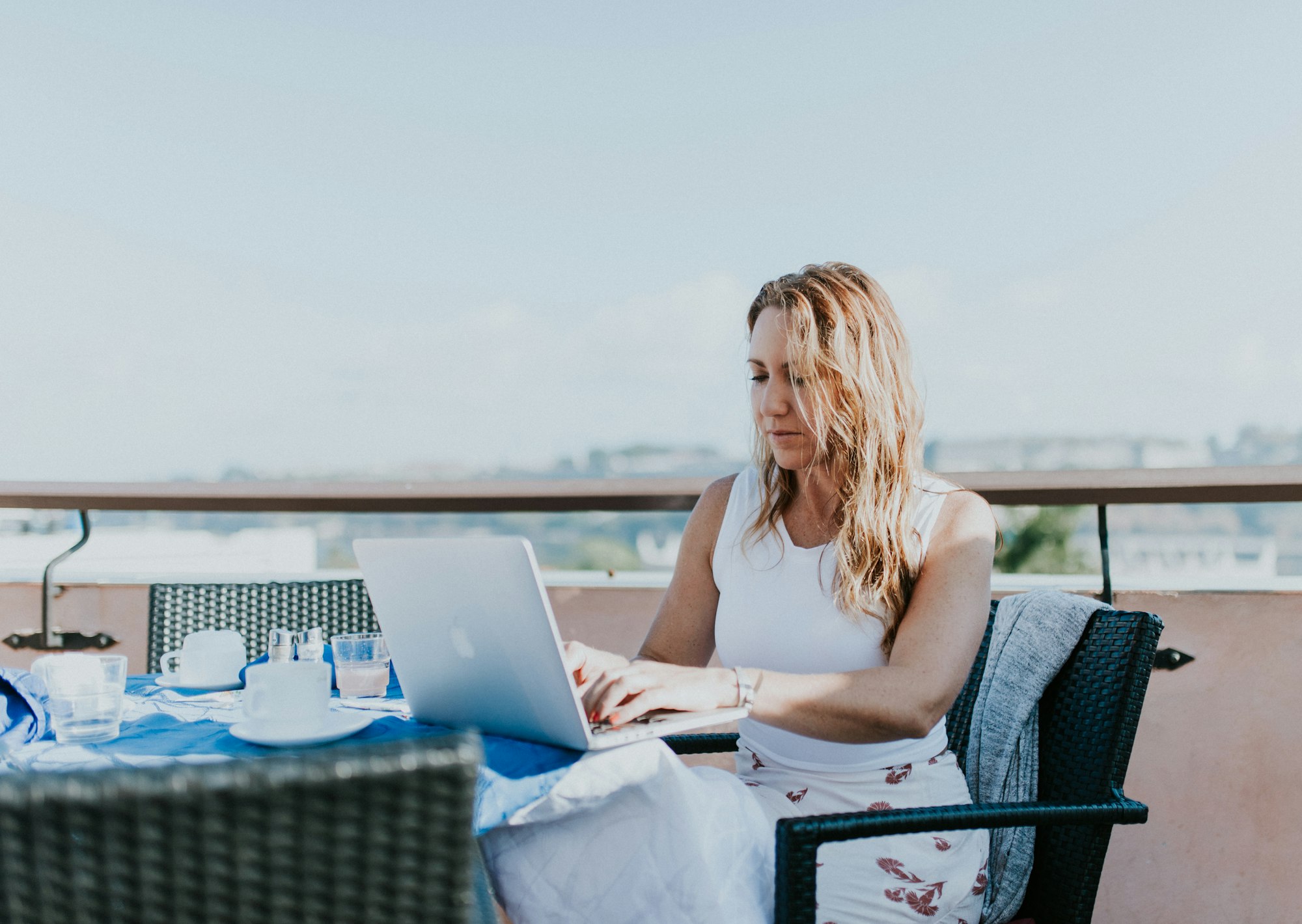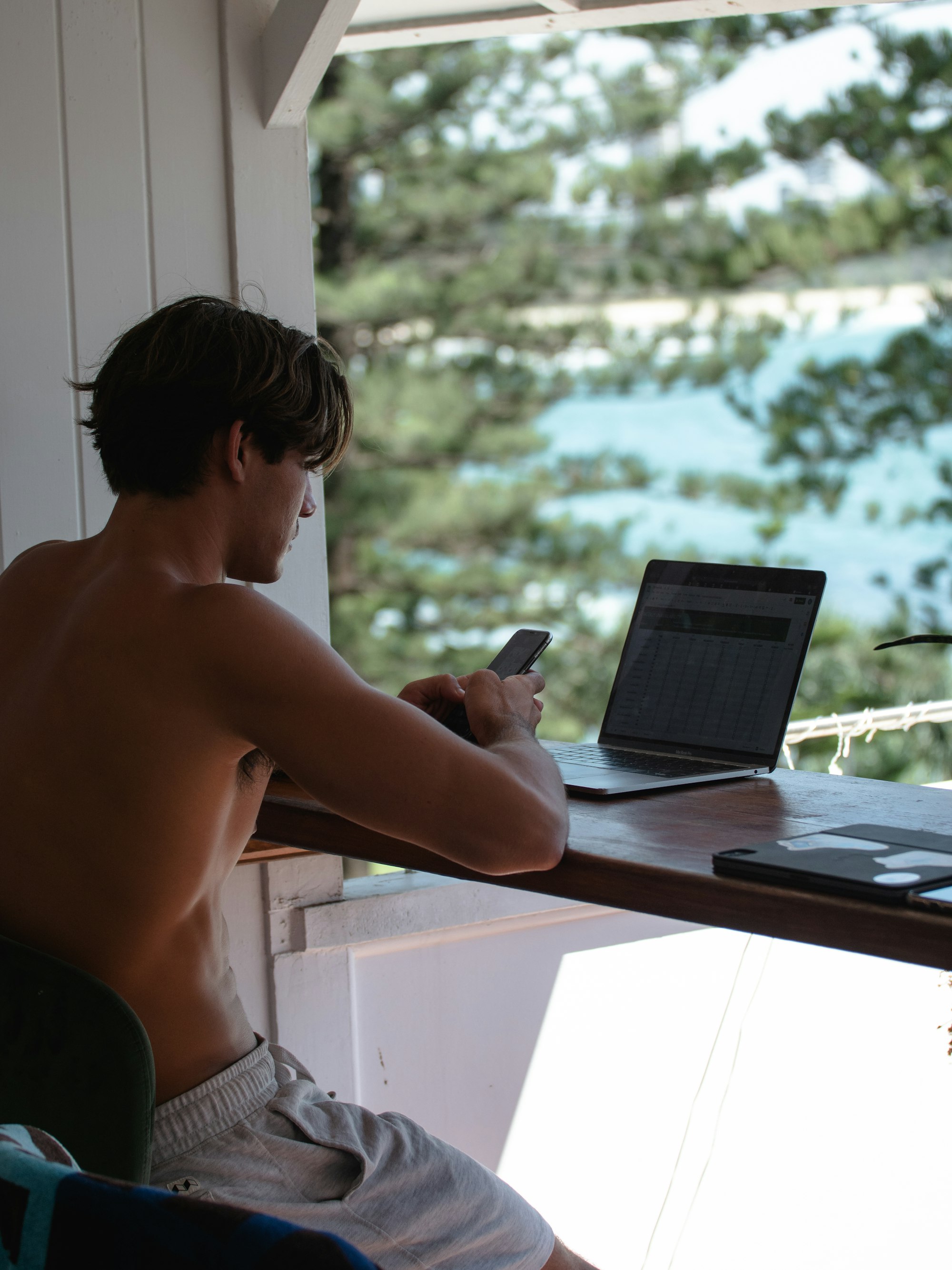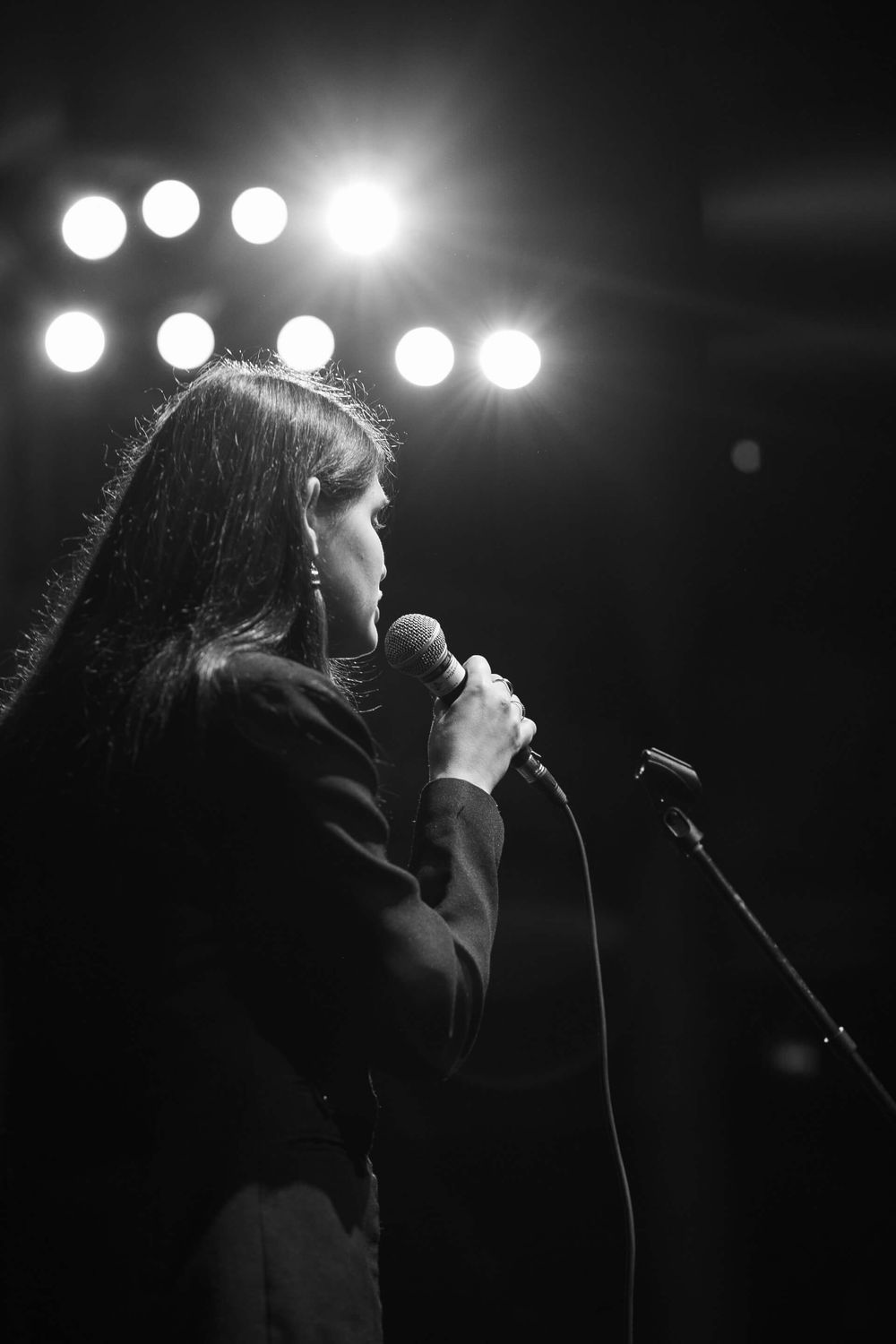From a shaded table in the garden of B&B Accademia al Colle, the teleworker can look up from their laptop to gaze at the city of Bologna spread out beneath them like a model. "Welcome to the office," jokes Andrea Babbi, who assists his wife Daniela Ciccardi in running the accommodation. Ciccardi offers four apartments with kitchens, a terrace area and outdoor seating. There are numerous spots around the property to work, like under the shade of fig trees or from a hammock strung between two trunks. This summer, the phenomenon of remote working at their property took off, beginning with Ciccardi and Babbi’s own children who studied for university degrees from the garden. They also welcomed a writer from Milan who stayed for several weeks, a couple from Holland combining work and traveling and even residents of Bologna looking for a change of scenery from their home office.
Ciccardi is one of many guest accommodation owners who has found remote workers to be a successful addition to her client base, especially amid travel restricting coronavirus regulations. Claudia Valentini, head of PR at the Emilia Romagna region’s tourist board, posits that the phenomenon is thanks to the area’s year-round appeal and variety of attractions. There’s plenty of culture available in cities like Bologna and Parma, and the region is generally accepted as one of the finest for food — it’s the birthplace of Parmigiano Reggiano cheese, parma ham, tortellini and mortadella. “You take the best of made in Italy while working, it is more a question of a different (or better!) way of life,” says Valentini.

Pool-Side Working
Pre-COVID, remote working — or “smart working” as it is dubbed in Italy — was not on many people’s radar, other than the somewhat nebulous concept of the “digital nomad”. Now, the popularity of the phenomenon means it has become much easier to travel without eating into precious vacation days. At Villaggio La Pescaccia, for example, near the coastal city of Riccione, guests can switch seamlessly between working and holiday mode.
The shaded hotel terrace is a cool and quiet place to work during the day, with conveniently placed sockets. So too are the seating areas outside the bungalows and villas spread throughout the property. The resort is also covered by WiFi so remote workers can even take their laptop to the pool. Then, it’s just a matter of slipping work materials into a bag and the worker clocks off for the day, ready to take a late afternoon swim in the pool, have a massage in the nearby tent or take a pre-dinner dip in the hot tub.

Take The Laptop To The Beach
The ultimate image of the digital nomad fantasy is often on a paradisiacal beach with palm trees and turquoise water. While Emilia Romagna’s coastline might not be quite as utopian as a Caribbean island, one beach is allowing remote workers to take advantage of the space completely free of charge. Zona Cesarini’s free beach provides a kiosk and seating area where guests can set up their laptop and stay as long as necessary. The kiosk supplies refreshments, although guests are not required to buy any food or drink in order to use the tables.
President of the area’s seaside bathing establishments Simone Battistoni points out his colleague who is sat at another table tapping away on her laptop. “This is a really free and easy environment,” he says, “many workers have found it the perfect atmosphere.” The whole 7km stretch of coastline also provides free WiFi, which Battistoni notes was “not an easy undertaking”.
Castle Conferences
Beaches and holiday villages can be a little too lively for some remote workers, though, in which case a medieval castle in a tiny hamlet may prove more suitable. Castello di Compiano, near the Ligurian coast, lords over the settlement of Compiano, which is designated one of Italy’s most beautiful villages. The 14 rooms of the castle don’t have great WiFi — blame those hefty stone walls — but the rambling interior spaces and vast gardens provide ample working areas with good internet connection and allow you to tell colleagues over video calls that you are “speaking from the billiard room”, for example.
For a break from work, a guide can take you on an hour-long tour of the castle which is also a fascinating potted history of everything from aristocratic families of Italy to Napoleon to oriental art and finally the Masonic lodge. Sadly you can't remote work at the last owner's Louis XIV desk though. The last owner's curation of the castle has turned it into something of a Wunderkammer with Persian rugs, a traveling Buddhist shrine, Pauline Napoleon's fans, golden cherubs from churches, ceramics from France, and copies of classics sculptures.

Post-Work Rewards
While the castle does have an onsite restaurant, I chose to explore a little of the local cuisine that Valentini at the tourist board suggested as a draw for remote workers at nearby agriturismo Il Cielo di Strela. Chef Mario Marini produces and cooks food that fuses Ligurian and Parma traditions. I taste pancetta and coppa, both cold meats, that he makes himself on the farm. The ravioli are stuffed with potatoes grown on-site and topped with pesto using basil from the garden. Marini also dabbles in historical dishes that have gone out of fashion. His vitello tonnato, a popular dish of cold veal slices in a tuna and mayonnaise sauce, uses roast pork slices instead to reflect the meat that would have been available in the past. It strikes me that Marini’s eco-friendly accommodation would also make for a productive remote working retreat.
Remote working is, of course, not for everyone or every type of job. If a working day keeps a guest busy until the evening, it may seem a little pointless shelling out for a hotel to only enjoy it from dinner-time onwards. But those with a little more flexibility in their working schedule — and resilience against distractions like pools and spas — can engineer a working week in Emilia Romagna that is a serious upgrade from the home office.







